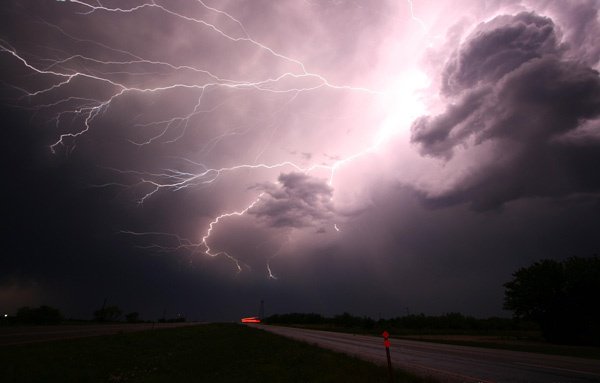 Cloud service providers such as Microsoft Azure, Amazon Web Services, and Google Cloud Platform host some of the biggest apps and websites on the internet today. When one of these services encounters downtime, the impact of the outage can be detrimental to the goals of an organization utilizing the cloud infrastructure.
Cloud service providers such as Microsoft Azure, Amazon Web Services, and Google Cloud Platform host some of the biggest apps and websites on the internet today. When one of these services encounters downtime, the impact of the outage can be detrimental to the goals of an organization utilizing the cloud infrastructure.
In practice, cloud computing offers businesses more upside in terms of cost, flexibility, and ease of use. Being able to spin up virtual machines without having to worry about physical constraints in your on-site datacenter can allow organizations to scale rapidly.
How Does an Outage Occur?
Cloud service provider (CSP) outages can occur for a number of reasons. Even with the rapid advancements in technology, CSPs have provided service level agreements that describe the reimbursement policies in the event of an outage.
While most cloud datacenters guarantee 99.99% or better uptime, there’s still that slight risk of an event occurring that could bring your cloud infrastructure to a screaming halt. CSPs may guarantee the latest updates to their customers, but mishaps are always possible. Here are some possible reasons as to why cloud outages occur:
- Hardware Failure: It could be a faulty switch, router, or the fiber running into the datacenter could become damaged.
- Software Update Failure: Organizations that use SaaS or PaaS products may experience downtime due to an upgrade that didn’t go as planned.
- Bad Weather: It may seem unlikely, but bad weather can become a major factor behind an outage. Just recently, one of Google’s data centers experienced data loss due to a lightning strike.
- Cybercrime: Cloud service providers can be the primary target for cyber criminals. Always setup two factor authentication on your accounts and never login to your cloud services without using some sort of encrypted connection.
How can a Cloud Outage be Prevented?
With so many products being 100% digital, CSP outages can impact more than just the bottom line of an organization; jobs and reputations can be at stake during a cloud outage. Unfortunately, many businesses rely on the cloud exclusively to host their customer facing apps and services. While this approach isn’t bad, many organizations use one CSP blindly and do not consider using multiple cloud offerings to ensure maximum redundancy.
Here are some tips to help your organization mitigate the impact of a cloud outage:
- Always use the best practices involved with managing and updating your infrastructure, apps and services. Carefully examine the maintenance schedules of your services and always backup your data before performing an update.
- Consider keeping a copy of your virtual machines and data stored in another datacenter so that it can be spun up if needed to accommodate your customers. For example, if you host an app at Azure, consider keeping a copy of the data in an AWS data center or vice versa.
- Setup text message alerts for your CSP incase an outage is reported. This will allow you to put your contingency plan in motion. You may also monitor your cloud service providers reported outages webpage, which should provide up to the minute details on service impacting conditions.
- Test and automate your failover solutions regularly to ensure the integrity of your system, should a cloud failure occur. Talented system administrators can usually script a failover solution for your infrastructure and create a trigger that causes these changes to happen autonomously.
A Real World Example: Google Loses Data Due to Lightning Strike
In August of 2015, the tech world was shocked to hear that four consecutive lightning strikes on a datacenter in Belgium caused Google to report a .000001% loss of data.
While this may sound like an insignificant amount of data, when you consider the total amount of storage that a datacenter can possess, that .000001% figure represents meaningful data to the entity that owned it. No datacenter is immune to the forces of nature, and for that reason your business must have a CSP neutral mentality in terms of deploying apps and services to your customers.
There are several other examples of cloud services failing such as Netflix being unavailable to users on Christmas Eve 2014, or when CloudFlare’s outage impacted the accessibility of over 750,000 websites.
While the world of technology is increasingly becoming cloud-centric, be sure to have a backup plan for your business in case your cloud services decide to go belly up due to a glitch with your cloud service provider.
Without a doubt, cloud is the next “big thing” in enterprise computing. If your business needs the ability to rapidly deploy infrastructure or the ability to work from anywhere, using public, private, or hybrid cloud services may prove to be a profitable transformation for the IT systems that shape your business. To see how you can benefit from cloud, give us a call at (833) 482-6435 or click the banner below to schedule a consultation online. We can help you make the best choice for your business!
If you enjoyed this IT Support article, please check out other posts on our blog and join us on Facebook, Twitter, LinkedIn, and Google+ to see how else we can help your Greenville, SC or Atlanta, GA area business succeed!

